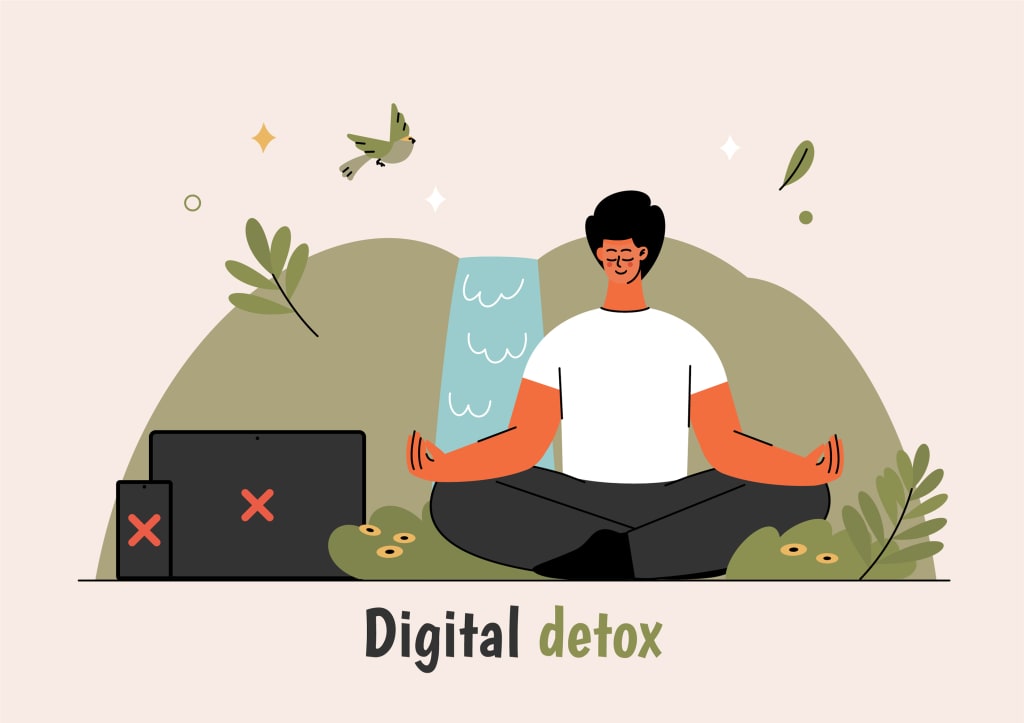
In the hustle and bustle of our modern lives, peace and tranquility can seem like an elusive commodity. The demands of work, family, and other responsibilities may often seem overwhelming, leaving little time for self-care and introspection. However, a growing body of research suggests that meditation, a practice rooted in ancient tradition, can offer an oasis of calm amidst the chaos and bring tangible benefits for mental health.
Meditation is a mind and body practice that has a long history of use for increasing calmness and physical relaxation, improving psychological balance, coping with illness, and enhancing overall health and well-being. But what does the science say? How does meditation affect our brains and mental health?
When we meditate, we engage in a kind of 'workout' for the mind. Neuroimaging studies have shown that regular meditation can lead to changes in the brain's structure and function. For instance, it can increase the thickness of the prefrontal cortex, a part of the brain responsible for executive functions like decision-making, attention, and self-awareness. Moreover, meditation can reduce activity in the "default mode network" (DMN), the brain network responsible for mind-wandering and self-referential thoughts. When the DMN is 'quiet,' we experience less mind-wandering and, consequently, less stress.
The benefits of meditation for mental health are numerous and varied. Regular practice can reduce symptoms of stress and anxiety, enhance emotional well-being, and improve attention and concentration. Furthermore, meditation can act as a natural antidote to depression by boosting the production of serotonin, the 'feel-good' hormone. Notably, mindfulness-based cognitive therapy (MBCT), which incorporates meditation practices, has been recognized as an effective treatment for preventing relapse in major depressive disorder.
While understanding the theory and science behind meditation is beneficial, the real magic happens when we incorporate it into our daily lives. So, how can we practice mindfulness meditation?
The first step is to find a quiet and comfortable place where you won't be disturbed. Sit comfortably, either on a chair or a cushion on the floor, with your back straight. Close your eyes and take a few moments to settle into your body, feeling its weight and the touch of your feet on the floor.
Next, bring your attention to your breath. Notice the sensation of the breath coming in and going out. Whenever you notice that your mind has wandered, gently bring your attention back to the breath.
Remember, the goal of meditation is not to empty the mind or to achieve a state of eternal calm, but rather to become aware of what's happening in the present moment. It's perfectly okay if your mind wanders - it's what minds do! What's important is to notice when it has wandered and gently bring it back to the breath.
Finally, after 10-20 minutes, or a period that feels comfortable for you, gently lift your gaze (if your eyes were closed) and take a few moments to notice how you feel. There's no right or wrong way to feel, so just be open to whatever comes up.
In conclusion, meditation is a valuable tool for enhancing mental health and well-being. By practicing mindfulness meditation, we can become better equipped to navigate the ups and downs of life with grace and resilience. While it is not a panacea, and should not replace professional mental health support when needed, it can play a substantial role in maintaining and improving mental health. So why not take a few moments each day to sit, breathe, and just be? Your mind might thank you for it.
Building a Regular Practice: Consistency is Key
To truly reap the benefits of mindfulness meditation, consistency is vital. Just like physical exercise, the impact of meditation is cumulative. You may not notice substantial changes immediately, but over time, the changes can be profound. The challenge lies in making mindfulness a part of your routine. To do this, start small. Five to ten minutes a day can be a great beginning. Gradually, as you get more comfortable, you can increase the duration. The goal isn't to meditate for long periods but to ensure you do it regularly.
Understanding Mindfulness: Beyond Meditation
While meditation is a critical part of mindfulness, it is not the whole picture. Mindfulness is about being fully present in each moment of life. This means not just during meditation, but also in your daily activities - be it eating, walking, or even doing house chores. By bringing mindful awareness into your everyday life, you can cultivate a deep sense of connection and appreciation for the present moment.
Overcoming Challenges: Dealing with Distractions and Restlessness
It's natural to face challenges when starting with mindfulness meditation. Many beginners complain about feeling restless or getting distracted easily. However, remember that the goal isn't to eliminate thoughts or achieve a completely quiet mind. Instead, view distractions as part of the process. Every time you notice your mind wandering and bring your attention back, you're strengthening your mindfulness muscle.
Meditation and Mental Health: A Support, Not a Solution
While meditation has significant benefits for mental health, it's not a substitute for professional help in cases of severe mental disorders. If you're dealing with conditions like major depression, anxiety disorders, or PTSD, it's essential to seek professional help. Meditation can be a part of a comprehensive treatment plan, but it should not replace therapy or medications when these are needed.
In a world that constantly demands our attention, meditation offers a respite. It is a tool that empowers us to reclaim our inner peace and cultivate a deep sense of awareness. By integrating mindfulness meditation into our lives, we can navigate the challenges of life with more calmness and resilience. No matter how turbulent the outer circumstances may seem, we can find a sanctuary within. This isn't just a comforting thought; it's a transformative practice that can fundamentally change the way we relate to ourselves and the world.
In conclusion, meditation and mindfulness offer us a way to nurture our mental wellbeing. They invite us to slow down, to breathe, and to reconnect with ourselves in the here and now. As we navigate the ebb and flow of life, these practices can be a beacon, guiding us towards peace and clarity. After all, the journey to wellness and mental health is not about becoming a different person, but about recognizing and embracing our authentic selves. So, why not take a moment to close your eyes, take a deep breath, and step onto the path of mindfulness? Your journey to wellbeing starts here.






Comments
There are no comments for this story
Be the first to respond and start the conversation.